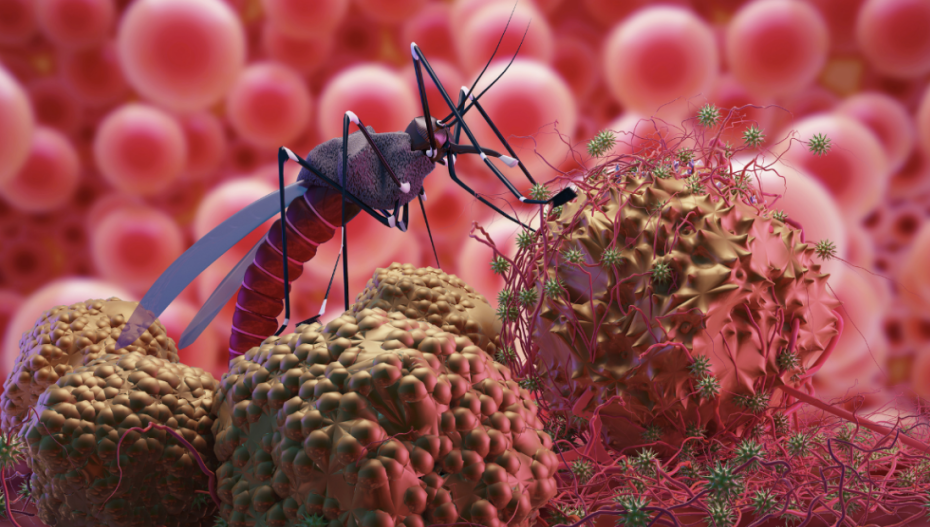Malaria treatment need not be so prolonged any more as by September this year, scientists in Gujarat and West Bengal will have enough data to study the impact of a low-dose, short-course treatment for the Plasmodium vivax strain of malaria in Indian conditions.
The treatment uses the primaquine, and is said to shorten treatment duration from the current 14 days to a mere 7 days.
This randomised controlled trial, designed to compare the efficacy, safety, and tolerability of low-dose, short-course primaquine in adults with uncomplicated P. vivax malaria, is being conducted in three public sector hospitals in India, of which 2 are in Gujarat—Civil Hospital Ahmedabad and LG Hospital. The third, Calcutta Medical College, is in West Bengal.
While this treatment approach has been approved in some countries, the Indian Council of Medical Research (ICMR) began its clinical trial in the monsoon of 2023 and is likely to meet its sample target of 200 patients in each hospital, total 600, by the end of monsoon 2024.
Dr RK Baharia, Scientist C at the National Institute of Malaria Research (ICMR-NIMR) said, “Currently, the treatment recommendation by the National Centre for Vector Borne Diseases Control (NCVBDC) is primaquine at a dose of 0.25 mg/kg/day provided over 14 days. However, there are dropouts and patients making lapses in treatment, leading to relapse of the Plasmodium vivax infection from the liver. A shorter regimen is likely to ensure that patients complete the entire drug course at home.”
Co-investigator Dr Leena Dabhi, Professor of Medicine and Superintendent of LG Hospital said, “After three doses of Chloroquine, the patients, based on other indications, are put on a regimen of primaquine. However, patients are known to have stopped taking primaquine before the required 14 days, because symptoms disappear after Chloroquine itself, leading to a lapse in treatment. We are trying to study the impact of the 7-day regimen which is a radical cure, and check whether it’s better, worse or equivalent to the current treatment.”
The hospital based RCT includes patients above 16 years, with uncomplicated vivax malaria, G6PD activity of ≥ 30% of the adjusted male median (AMM) and haemoglobin levels ≥ 8 g/dL. They will be recruited into the study and randomised in a 1:1 ratio to receive standard schizonticidal treatment plus 7-day primaquine at 0.50 mg/kg/day or standard care with schizonticidal treatment plus 14-day primaquine at 0.25 mg/kg/day. Patients will be followed up for 6 months. The primary endpoint is the incidence risk of any P. vivax parasitaemia at 6 months, said the abstract of the study.
Safety concerns include the risk of severe anaemia, the risk of blood transfusion, a > 25% fall in haemoglobin and an acute drop in haemoglobin of > 5 g/dL during primaquine treatment.
Even as India awaits the results of the clinical trial of the 7-day course of primaquine for vivax malaria, the USFDA in 2018, approved Tafenoquine for prophylaxis of malaria, as well as a radical cure for P. vivax specifically. A clinical trial on the feasibility of its use in India is under planning stage by the ICMR.
According to the CDC website, “The long terminal half-life of tafenoquine (approximately 16 days) offers potential advantages of less frequent dosing for prophylaxis and a single-dose course for treatment.” It is contraindicated for people with G6PD deficiency as it can cause haemolytic anaemia in such patients.
Ahmedabad city reported 1,281 cases of vivax malaria in 2022 and 1,193 cases in 2023. In the first 3 months of 2024, the city has already reported 58 cases, according to data from the Ahmedabad Municipal Corporation (AMC). The number of P. vivax cases are 10 times more than P. falciparum cases.
Also Read: In’tl Tennis Player Booked For Posting Lewd Pics Of Woman On Social Media












